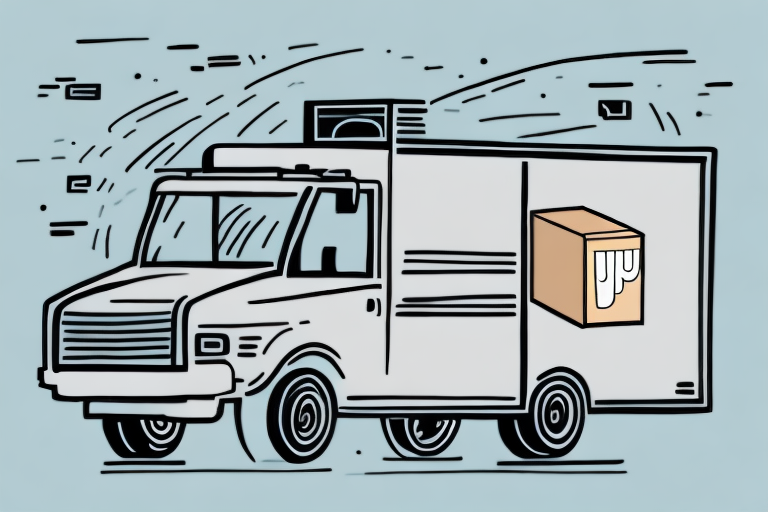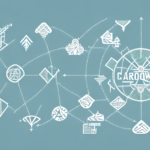If you're considering collaborating with UPS, it's vital to understand the importance of a non-disclosure agreement (NDA). An NDA is a legal agreement designed to protect confidential information exchanged between two parties. In a business setting, an NDA can help safeguard trade secrets, proprietary information, and other sensitive material from being shared without permission. Learn more about NDAs from Investopedia.
What is an NDA and Why is it Important When Working with UPS?
An NDA is a commitment between two parties to keep specific information confidential. This may include strategic plans, customer data, proprietary processes or products. By signing the agreement, the recipient (in this case, UPS) agrees not to disclose the confidential information. This ensures that any sensitive material shared during business dealings with UPS remains protected.
Moreover, NDAs are crucial when collaborating with UPS because of the company's role as a global logistics leader handling vast amounts of data, including personal information, financial records, and trade secrets. According to UPS's Privacy Policy, they are committed to protecting customer information. Without an NDA in place, there's a risk that this information could be leaked or shared with unauthorized parties, leading to significant consequences for both UPS and its clients. Therefore, signing an NDA is a necessary step to ensure the protection of confidential information and maintain trust between all parties involved.
Exploring the Legal Ramifications of Not Having an NDA with UPS
Collaborating with UPS without an NDA places sensitive information at risk. Without an NDA, you might inadvertently release information related to processes, products, or deals that are confidential, leading to concerns over trade secrets and intellectual property. Such disclosures can impact your company's reputation or bottom line.
Furthermore, not having an NDA with UPS can lead to potential legal disputes. If UPS were to use or disclose your confidential information without permission, you might have grounds to take legal action against them. However, without an NDA, it may be challenging to prove that the information was confidential and that UPS breached their duty to keep it so. This can result in costly and time-consuming legal battles that could have been avoided with a simple NDA agreement.
Another significant issue from not having an NDA with UPS is the loss of competitive advantage. If competitors gain access to your confidential information through UPS, they could exploit it to gain an edge over your business, such as stealing ideas, replicating products or services, or undercutting prices. An NDA helps protect your confidential information and maintain your competitive advantage in the market.
How to Draft an Effective NDA for Your Business Dealings with UPS
When drafting an NDA for working with UPS, seeking the assistance of a legal expert is advisable. This ensures that all relevant clauses are included, that the agreement's language is clear and comprehensive, and that the agreement is enforceable in case of a breach. Key clauses to include in your NDA may involve:
- Definition of Confidential Information: Clearly outline what is considered confidential.
- Usage Restrictions: Specify how the information can and cannot be used.
- Term of Agreement: Indicate the duration the NDA will be in effect.
- Dispute Resolution: Outline how disputes will be handled and resolved.
- Remedies for Breach: Specify the consequences and remedies if the NDA is breached.
It's also crucial to consider the NDA's scope. Determine whether it will cover all business dealings with UPS or only specific projects or transactions. Additionally, include provisions for how disputes will be resolved and what remedies are available in the event of a breach. By carefully considering these factors and seeking expert guidance, you can draft an NDA that protects your business interests while fostering a productive and collaborative relationship with UPS.
The Benefits of Signing an NDA When Collaborating with UPS
Signing an NDA offers clear benefits: it protects confidential information, helping you avoid the legal and financial risks associated with unauthorized disclosures. By treating private information with the appropriate level of confidentiality, you can create a foundation of trust and mutual respect with UPS, leading to stronger business relationships characterized by transparency, honesty, and collaboration.
Another significant benefit is the safeguarding of your intellectual property. Ensuring that your confidential information isn't shared with unauthorized parties protects your trade secrets, patents, and other proprietary information. This is particularly important when working on projects involving new technology or innovative ideas.
Additionally, an NDA can streamline the collaboration process. When both parties are clear on what information is confidential and how it should be handled, it helps avoid misunderstandings and delays, resulting in a more efficient and productive collaboration that benefits both you and UPS.
How to Negotiate the Terms of Your NDA with UPS
In some cases, negotiating the terms of your NDA agreement with UPS may be necessary. This could involve modifying the agreement's language to suit both parties or adjusting the scope to reflect your business relationship's unique needs. When negotiating, it's essential to stay open and transparent about your requirements and concerns.
Duration of the Agreement: Consider whether to limit the NDA's length to a specific period or include provisions for early termination if certain conditions are met. Carefully evaluate the risks and benefits of different duration options before making a decision.
Scope of the Agreement: You may want to limit the types of information covered by the NDA or specify certain exclusions or exceptions. Additionally, decide whether the NDA should apply to all employees or only specific individuals within your organization.
By meticulously defining the NDA's scope and other key terms, you can ensure your confidential information remains protected while still allowing effective collaboration and communication with UPS.
Common Mistakes to Avoid When Drafting an NDA for UPS Partnership
When drafting an NDA for your partnership with UPS, avoiding common mistakes is crucial. These include:
- Undefined Confidential Information: Failing to clearly define what constitutes confidential information can lead to misunderstandings.
- Omitting Key Clauses: Missing essential clauses, such as the agreement's length or consequences for breach, can weaken the NDA's effectiveness.
- Lack of Specificity: Not including provisions tailored to the specific collaborative work with UPS can result in inadequate protection.
- No Consequences for Breach: Failing to outline the repercussions for breaching the NDA leaves you vulnerable to unauthorized disclosures without a clear path for remediation.
- Not Ensuring Understanding: Ensuring all parties fully understand and have signed the NDA before sharing confidential information is essential.
The Role of Confidentiality in Maintaining Strong Business Relationships with UPS
Confidentiality is a cornerstone of any strong business relationship with UPS. By maintaining confidentiality around trade secrets, proprietary information, and other sensitive data, you help build trust and goodwill with UPS, paving the way for new opportunities and collaborations in the future.
Moreover, confidentiality protects your business interests. Keeping sensitive information secure prevents competitors from accessing valuable insights and strategies that could give them a market advantage. This is particularly important in industries where innovation and intellectual property drive success.
Tips for Enforcing Your NDA Agreement with UPS
If you suspect that UPS has violated your NDA agreement, there are several steps you can take to enforce your rights, including:
- Legal Notification: Send a formal legal notice to UPS outlining the breach.
- Mediation: Work with a mediator to resolve disputes amicably.
- Legal Action: Seek legal remedies in court if necessary.
Enforcing an NDA can be complex and time-consuming, so consulting a legal professional specializing in intellectual property law is recommended to ensure your rights are protected and that you take the appropriate steps to enforce your NDA agreement with UPS.
Examples of High-Stakes Scenarios That Could Have Been Avoided with an NDA in Place during Collaboration with UPS
High-stakes scenarios can arise during collaboration with UPS, such as:
- Leak of Product Specifications: Sharing product specifications for a new product line without an NDA could lead to sensitive information leaks before launch.
- Disclosure of Financial Data: Sharing financial data without protection could result in breaches that damage your reputation and brand.
- Unauthorized Sharing of Customer Information: Disclosing sensitive customer information without an NDA can lead to compliance violations and loss of customer trust.
Implementing an NDA can prevent these worst-case scenarios by ensuring that all shared information remains confidential.
In conclusion, a non-disclosure agreement is a key element of any successful partnership with UPS. By protecting confidential information, you can build trust and goodwill with UPS, safeguard your reputation and bottom line, and position yourself for success in business collaborations. An NDA not only protects your confidential information but also ensures that UPS feels secure in sharing their sensitive information with you, leading to a more productive and successful partnership.




















